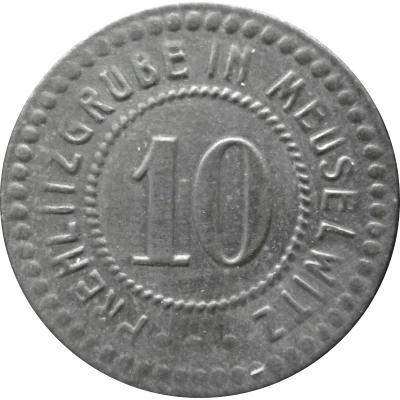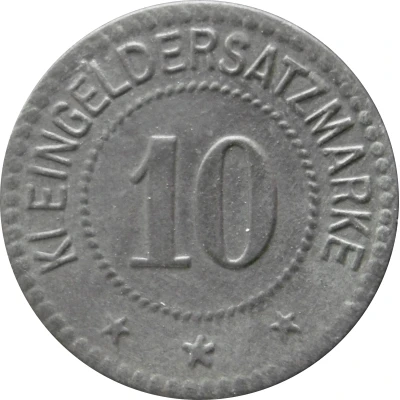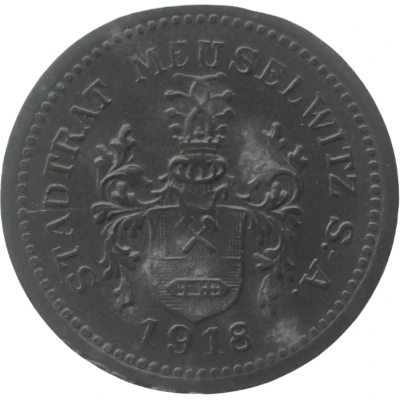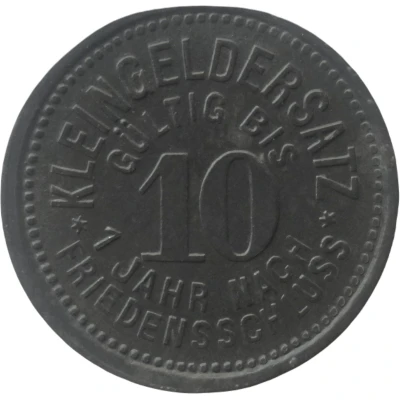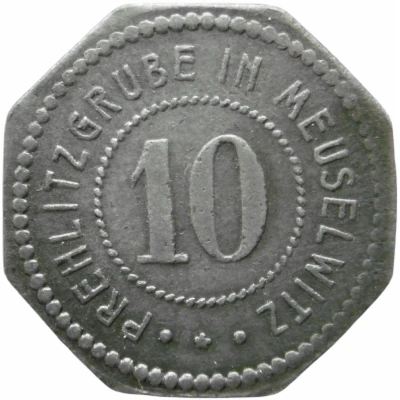
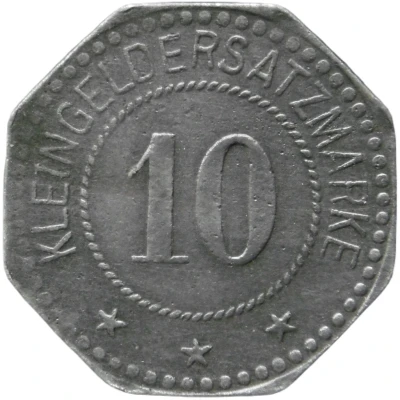

© Willem63 (CC BY-NC-SA)
10 Pfennigs - Meuselwitz (Prehlitzgrube) ND
| Zinc | 2.2 g | 20.8 mm |
| Issuer | City of Meuselwitz (Saxe-Altenburg) (Federal state of Saxe-Altenburg) |
|---|---|
| Type | Standard circulation coin |
| Value | 10 Pfennigs (10 Pfennige) (0.10) |
| Currency | Mark (1914-1924) |
| Composition | Zinc |
| Weight | 2.2 g |
| Diameter | 20.8 mm |
| Thickness | 1.2 mm |
| Shape | Octagonal (8-sided) |
| Technique | Milled |
| Orientation | Medal alignment ↑↑ |
| Demonetized | Yes |
| Updated | 2024-10-04 |
| Numista | N#282585 |
|---|---|
| Rarity index | 97% |
Reverse
Pearl rim, legend surrounding beaded circle with denomination centered
Script: Latin
Lettering:
KLEINGELDERSATZMARKE
10
★★★
Edge
Plain
Comment
Menzel: BBBFa: Braunkohlenindustrie
Interesting fact
The 10 Pfennigs - Meuselwitz (Prehlitzgrube) ND coin was minted during a time when Germany was going through a period of rapid inflation, known as the "Inflation of the 1920s." This inflation was caused by the government printing large amounts of money to pay for the costs of World War I, and it led to a significant decrease in the value of the German mark. As a result, many Germans turned to alternative forms of currency, such as foreign currencies or commodity-backed currencies like the 10 Pfennigs - Meuselwitz (Prehlitzgrube) ND coin, which was made of zinc and had a relatively low face value. This coin is a tangible reminder of the economic challenges faced by Germany during this time period.
